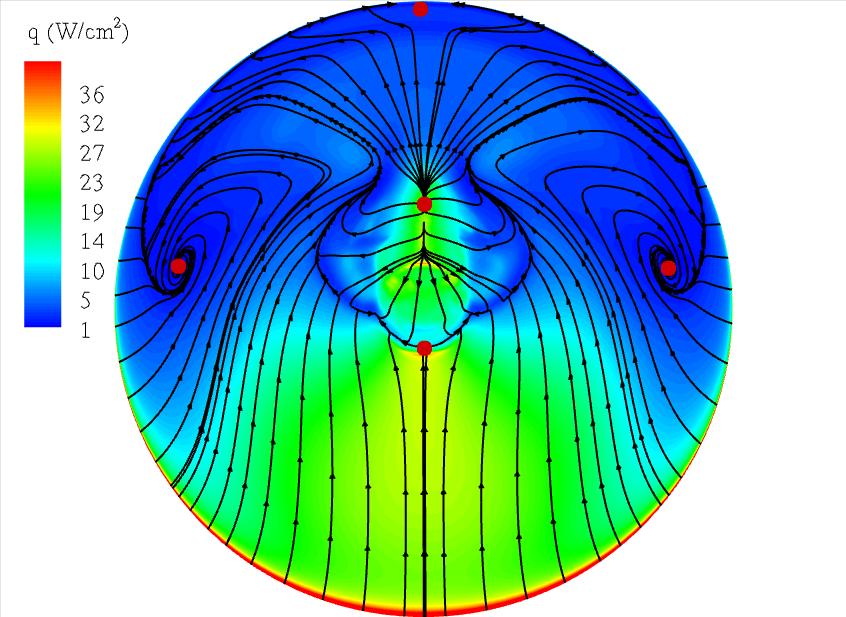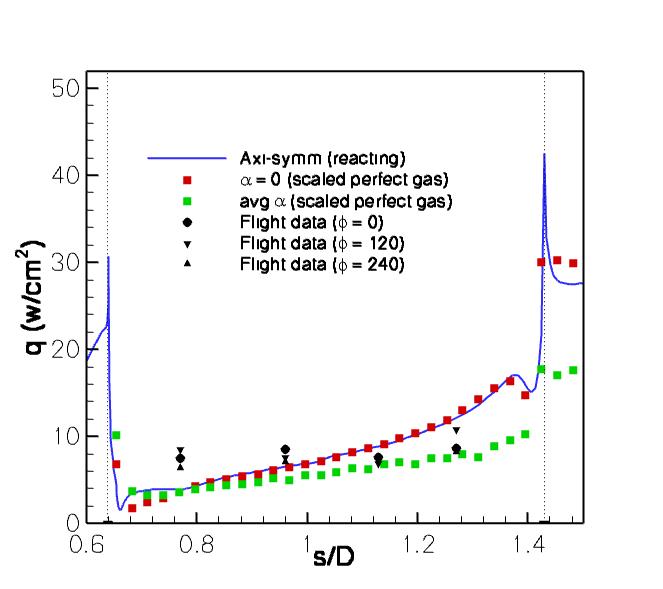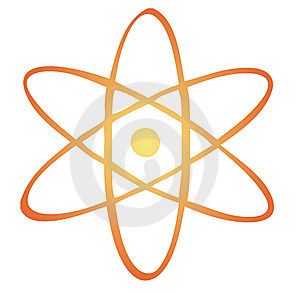Effect of Angle of Attack on Re-entry Capsule Afterbody Flowfield :
This paper presents three-dimensional Reynolds-averaged Navier Stokes simulations of the Fire II re-entry
configuration. The free-stream conditions correspond to the 35 km altitude trajectory point, where the re-entry vehicle
has significant oscillations about its axis. Computations are performed at varying angles of attack upto 20 deg to study
its effect on the afterbody flowfield. Compared to the zero angle of attack symmetric flow, the wake is significantly
altered by even a small angle of attack. There is considerable variation in surface properties between the attached
windward flow and the separation bubble on the leeward afterbody. Accounting for these differences is found to improve CFD
predictions as compared to in-flight measurements.
Ref: Vadivelan, C., and Sinha, K., "Effect of Angle of Attack on Re-entry Capsule Afterbody Flowfield" AIAA Paper,
AIAA 2008-1282, Jan 2008..
Representative results:

Surface streamlines and heat transfer rate on the Fire II afterbody at AOA=20 deg.

Variation in heat transfer rate along the Fire II afterbody at Mach 16

